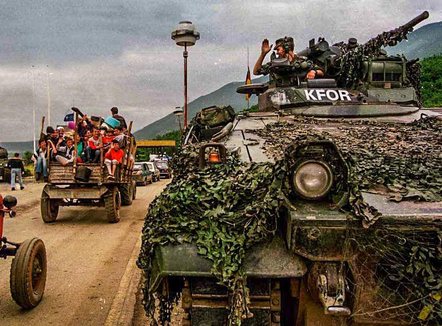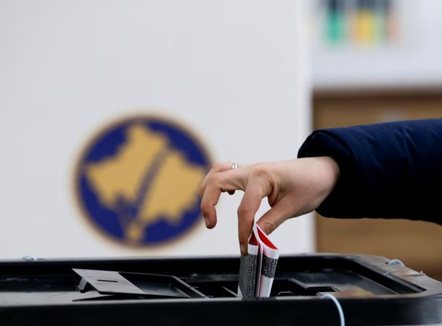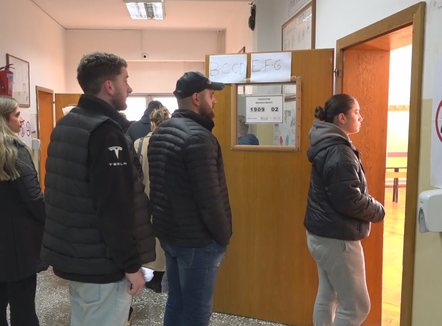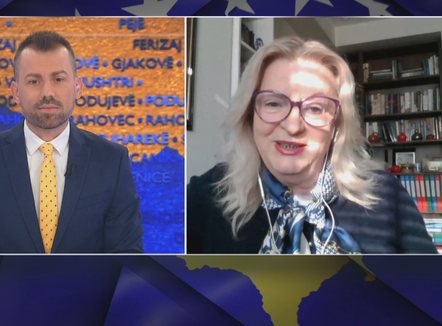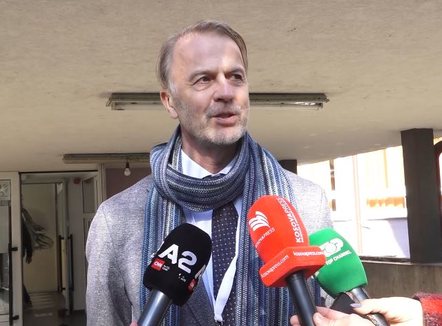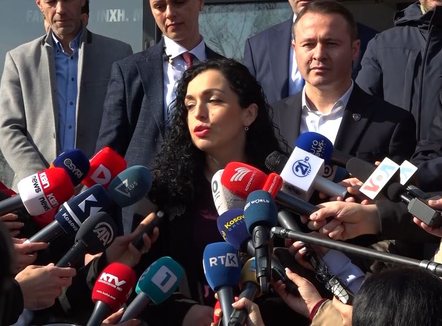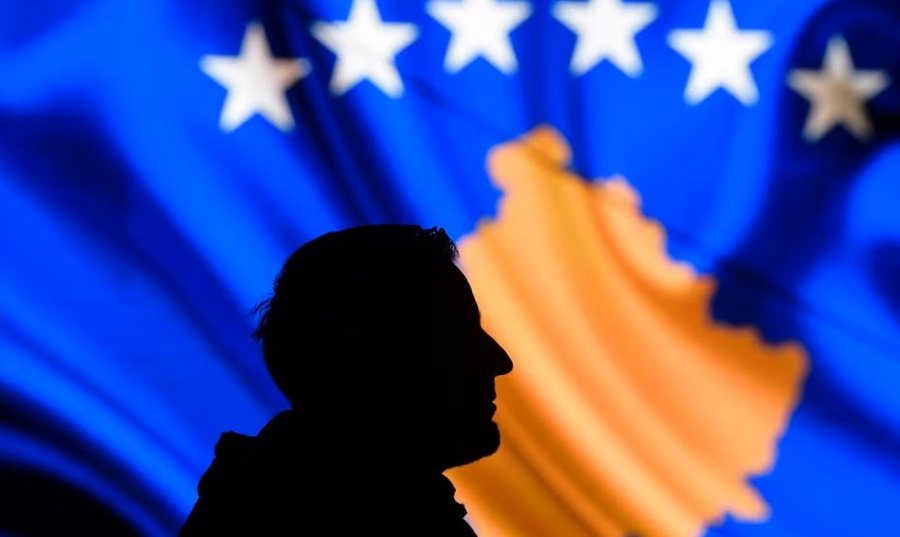
Kosovo's diaspora is a powerful but untapped asset in strengthening the country's international position, experts say. Once a driving force behind the independence drive, its potential today remains fragmented, they say.
With "extraordinary potential," Kosovo's diaspora could become a factor in strengthening the country's international position, but it lacks a unified cause and genuine coordination, say observers of its activities.
Lirim Krasniqi, a policy analyst at the Germin organization, says that "policies and strategies must come from Kosovo" and such, according to him, are lacking.
His statement is also agreed by the former Deputy Foreign Minister of Kosovo, Valon Murtezaj, currently a lecturer in Diplomacy at the IESEG School of Management in Paris.
According to him, Kosovo does not properly utilize the potential of its diaspora to open new paths for diplomacy, for the good of the country.
"This does not mean that there is no activity. But the activity of the diaspora, of prominent individuals, of various groups - be they businessmen, academics, people of culture and art - remains fragmented and isolated," Murtezaj told Radio Free Europe.
In the last population census in Kosovo, in 2024, Kosovars living in the diaspora were included for the first time.
Of these, around 550 thousand were registered, according to data published by the Kosovo Agency of Statistics.
But it is believed that the number of people of Kosovo origin living in the diaspora is much higher, only they do not have Kosovo citizenship.
What was and is the role of the diaspora in diplomacy?
In recent years, the diaspora has played a role in the distribution of seats in the Kosovo Assembly, through voting.
For the last parliamentary elections, held on February 9, nearly 105,000 voters from the diaspora were registered, of whom about 80,000 voted - some at diplomatic missions, others by mail.
The main political parties, before and during the election campaign, organized several rallies with Kosovars in the diaspora - especially in Europe - seeking support for votes.
Professor Murtezaj says that, considering the great potential of the diaspora, the approach of Kosovo's parties and institutions towards it is paradoxical, because it is seen only as a source of votes.
“[Voting] is the minimum an individual can do. Engagement and cooperation should be far beyond that, because elections are one day in four years, while the potential contribution of the diaspora is 365 days or a lifetime,” says Murtezaj.
He believes that the best example of the power of diaspora action is the period of the '90s.
At that time, Kosovo was under the Serbian regime of Slobodan Milosevic, whose state apparatus exercised violence and left the vast majority of Kosovars unemployed.
During that time, remittances from the diaspora were among the main sources of survival for Kosovo Albanians, who organized their own parallel institutions.
Even these political movements at that time were mainly financed by the diaspora, which lobbied for the Kosovo issue elsewhere in the world.
Avni Spahiu, former Kosovo ambassador to the United States and Turkey, describes the role of the Albanian diaspora in the US on the Kosovo issue during the 1990s as irreplaceable.
He emphasizes that the diaspora can play this role even today, at a time when "lobbying in Washington is at its lowest point."
Through the diaspora, he says that Kosovo can initiate the reformatting of the "Albanian friendship group", which is currently absent from the US Congress, but which once consisted of congressmen such as Eliot Engel, Tom Lantos, Bob Dole and others.
"Now, how much can the diaspora do? They are also Americans and have the right to seek to contact Congress, to form a 'friendship group'. Now we need it," Spahiu tells Radio Free Europe.
He adds that the Kosovo diaspora has influential individuals who can help create "friendship groups" in the parliaments of other Western countries as well.
During the 1980s and 1990s, many associations, clubs, and other organizations of the Kosovo diaspora existed in Western countries, operating mainly on the basis of voluntary engagement.
Krasniqi, from the Germin organization, says that they were meeting points not only for maintaining contacts between Kosovo Albanians, but also for organizing financial aid for the country, as well as for establishing connections with the political and diplomatic channels of the countries where they lived.
According to him, such associations and organizations still exist today, but they cannot be expected to act as they did in the 1990s.
The cause that united them at that time was the fight for democracy and independence of Kosovo from the former Yugoslavia, especially from Serbia, according to Krasniqi.
"Back then, the cause was common and everyone acted with their own forces, knowing the lack of a state that would guide and organize them. Today, such an organization cannot be expected, because today we have a state, we have the institutions," Krasniqi tells Radio Free Europe.
According to him, it is Kosovo's institutions that must guide the diaspora today, to transform its potential into diplomatic power.
How to put the diaspora into the function of diplomacy?
Almost two weeks ago, Radio Free Europe/Radio Liberty addressed questions to the Kosovo Ministry of Foreign Affairs and Diaspora regarding possible coordination between Kosovo institutions and the diaspora, as well as its possible contribution to strengthening Kosovo's international position, but did not receive a response.
Murtezaj, who served as Kosovo's Deputy Minister of Foreign Affairs from March 2016 to June 2017, says that one of the challenges that has accompanied and continues to accompany this ministry is the lack of specific strategies for each country, taking into account the different contexts in Western and other countries where Kosovars or individuals of Kosovo origin live.
"The same behaviors and objectives do not apply to every country. The Kosovo government must have a unique, individual strategy for each state or regional context around the world," says Murtezaj, expressing his belief that Kosovo institutions also lack an understanding of the role of public diplomacy.
"Public diplomacy goes beyond official 'government to government' or 'embassy to embassy' communications. Public diplomacy touches all levels and spheres of life in a given country," says Murtezaj.
According to him, it should also aim to create a ground for the realization of diplomatic ambitions between the authorities of the two states, through increased awareness, consciousness and subsequently international recognition of a state.
This type of diplomacy, says Murtezaj, should include individuals from Kosovo who present success stories and who help to relax interpersonal, cultural, academic, institutional, sports and other relations.
And, Kosovo has many such individuals and groups in the diaspora, according to Murtezaj.
"To extract the benefits from this potential mine of contribution to Kosovo, an umbrella strategy is needed, which then has the ability to orient these contributions towards specific goals," he emphasizes.
Kosovo currently does not have any lobbying companies engaged in the United States.
Former Ambassador Spahiu says that Kosovo institutions are behaving with "excessive comfort" regarding this issue.
According to him, strengthening Kosovo's image is necessary at a time when Kosovo-US relations have been shaken, as a result of some actions by the Kosovo Government in the northern part of the country, which the US has considered uncoordinated and with a negative impact on the local Serbian community.
"I think more can be done. We need to look for new forms of organization and for the diaspora not to be distracted. Initiatives must start from our diplomacy," Spahiu emphasizes.
For Krasniqi, from the Germin organization, the engagement of the diaspora in diplomatic matters is a bit delicate, especially when it comes to contracting lobbying companies or individuals for this issue.
He explains that many individuals from the diaspora are citizens of the countries where they live and says that this would create a sensitive situation if they were to advocate for another state - in this case Kosovo.
One idea, Krasniqi says, could be the creation of an institutionalized department that would continuously deal with diaspora issues and its diplomatic engagement.
Radio Free Europe attempted to contact several Kosovar diaspora associations, both in Europe and the US, to get their comments on the approach of Kosovo institutions towards diaspora engagement in diplomatic matters. However, by the time of publication of this article, they had not responded.
Kosovo citizens have long received over 1 billion euros in remittances per year.
Data from the Central Bank of Kosovo also show that the diaspora ranks first in terms of foreign investments in Kosovo, which are made mainly in real estate./ REL (A2 Televizion)

